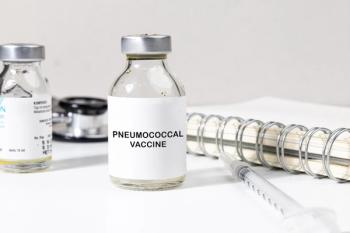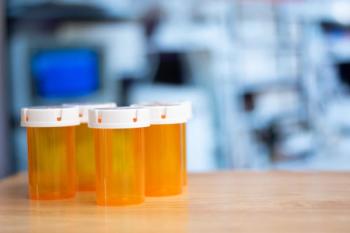
FDA Approves First Nasally Administered Glucagon Therapy for Severe Hypoglycemia
Officials with the FDA have approved the first nasally administered glucagon therapy for the emergency treatment of severe hypoglycemia, according to a press release.
Eli Lilly’s glucagon (Baqsimi) nasal powder 3 mg is indicated for the treatment of severe hypoglycemia in individuals with diabetes aged 4 years and older. According to Lilly, the treatment is compact, portable, and ready to use in a single, fixed dose, designed with emergency use in mind. Glucagon works by increasing blood sugar levels in the body by stimulating the liver to release stored glucose into the bloodstream.
“Severe hypoglycemia is an unpredictable event for people with diabetes that can happen anytime, anywhere,” Sherry Martin, MD, vice president of Lilly Medical Affairs, said in a statement. “It’s an experience that can be very stressful and difficult for those helping a person in low blood sugar emergency. The FDA’s approval of Baqsimi may help people prepare for these moments with an innovative product that has the simplicity of nasal administration.”
Until now, individuals treated for a severe hypoglycemic episode had to receive a glucagon injection that first needed to be mixed in a multi-step process.
The approval is based on efficacy and safety data of glucagon nasal powder in 2 studies including 80 and 78 patients with diabetes. The study compared a single dose of glucagon nasal powder with a single dose of injectable glucagon in causing a blood sugar response to insulin-induced hypoglycemia.
According to the study, glucagon nasal powder demonstrated noninferiority to injectable glucagon. Treatment success was defined as an increase in plasma glucose levels to ≥70 mg/dL or a ≥20 mg/dL rise in plasma glucose from nadir within 30 minutes of receiving the study glucagon. One hundred percent of patients treated with the nasal powder and 100% treated with injectable glucagon achieved treatment success in study 1, and 98.8% and 100%, respectively, achieved success in the second study.
For adult patients, the mean nadir blood glucose was 54.5 mg/dL for glucagon nasal powder and 55.8 mg/dL for glucagon injection in study 1 and 44.1 mg/dL for glucagon nasal powder and 47.1 mg/dL for glucagon injection in study 2.
In pediatric patients, the mean nadir blood glucose across different age cohorts was 67 mg/dL to 73 mg/dL for nasally administered glucagon and 69 mg/dL to 72 mg/dL for glucagon injection, according to the studies.
Adverse effects associated with glucagon nasal powder are similar to injectable glucagon, with the addition of nasal and eye-related symptoms due to administration. Patients should not take glucagon nasal powder if they have pheochromocytoma, insulinoma, or known hypersensitivity to glucagon or the inactive ingredients found in glucagon.
Glucagon nasal powder is expected to be stocked in retail pharmacies within 1 month, according to the release.
References
Baqsimi (glucagon) nasal powder 3 mg, the first and only nasally administered glucagon to treat severe hypoglycemia in adults and children with diabetes ages 4 years and older, approved by FDA [news release]. Eli Lilly.
FDA approves first treatment for severe hypoglycemia that can be administered without an injection [news release].
Newsletter
Pharmacy practice is always changing. Stay ahead of the curve with the Drug Topics newsletter and get the latest drug information, industry trends, and patient care tips.























